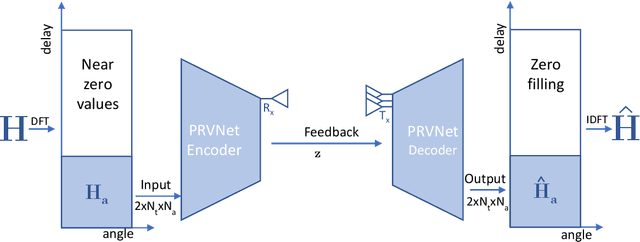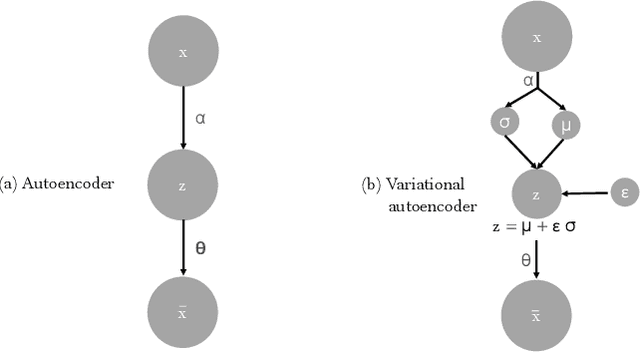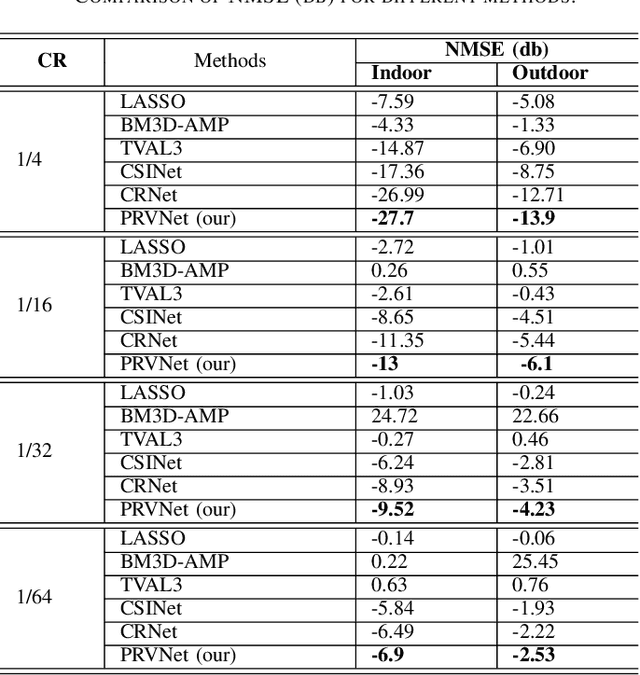PRVNet: Variational Autoencoders for Massive MIMO CSI Feedback
Paper and Code
Nov 09, 2020



In a frequency division duplexing multiple-input multiple-output (FDD-MIMO) system, the user equipment (UE) send the downlink channel state information (CSI) to the base station for performance improvement. However, with the growing complexity of MIMO systems, this feedback becomes expensive and has a negative impact on the bandwidth. Although this problem has been largely studied in the literature, the noisy nature of the feedback channel is less considered. In this paper, we introduce PRVNet, a neural architecture based on variational autoencoders (VAE). VAE gained large attention in many fields (e.g., image processing, language models, or recommendation system). However, it received less attention in the communication domain generally and in CSI feedback problem specifically. We also introduce a different regularization parameter for the learning objective, which proved to be crucial for achieving competitive performance. In addition, we provide an efficient way to tune this parameter using KL-annealing. Empirically, we show that the proposed model significantly outperforms state-of-the-art, including two neural network approaches. The proposed model is also proved to be more robust against different levels of noise.
 Add to Chrome
Add to Chrome Add to Firefox
Add to Firefox Add to Edge
Add to Edge